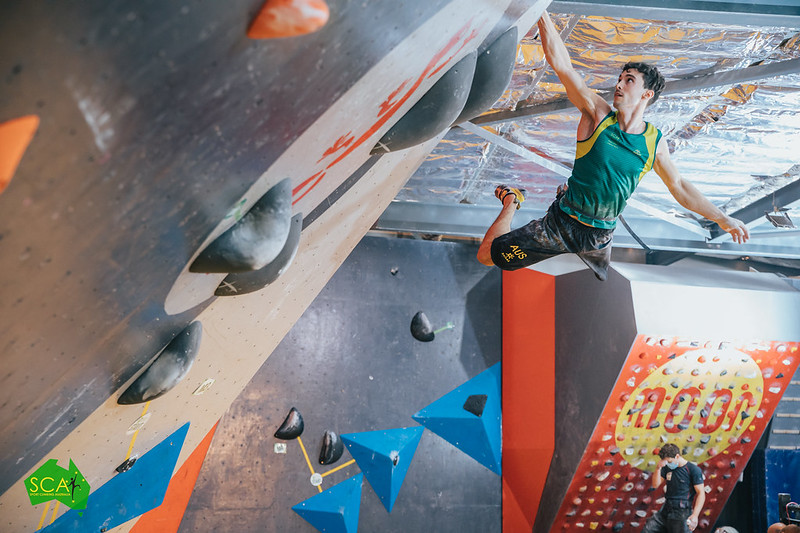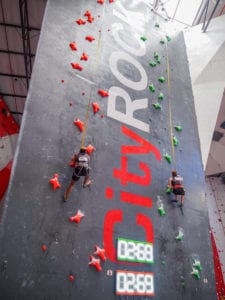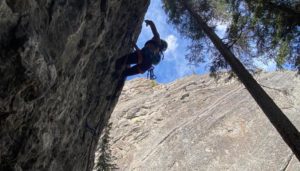Four More Climbers Qualify for Tokyo Olympics
Four more athletes are going to the Tokyo Olympics, leaving only two wildcard positions left to be resolved by the Olympic committee

It has been a long road. What began in mid-August of 2019, finally concluded with Cape Town South Africa on December 20, 2020. After one year and an additional four months, each of the 38 spots, 19 per gender, have been allocated to climber’s for the Tokyo Olympics. These climbers will represent the sport for the first time on the Olympic stage in. There are two remaining “Wildcard” selections to be made by the Olympic Committee.

After a difficult year, the International Federation of Sport Climbing (IFSC), its partners, and their associated athletes have worked hard to produce a fair and equal platform for climbing’s Olympic hopefuls. Countless virtual meetings, difficult decisions and novel pandemic-related competition regulations have developed Sport Climbing into an internationally recognized event that will continue on to the 2024 Paris Olympic Games.
In this process, International Sport Climbing and its athletes have transformed from specialists, largely competing in either Lead or Boulder or Speed, into Combined (all three disciplines within the same competition) professionals. For many athletes, this has meant a complete restructuring of training goals and has been further complicated by a world-altering pandemic.
The difficulty of high-performance climbing is only made more challenging by an inability to practice related, comp-specific moves that can only be replicated in larger facilities. The 2021 Tokyo Olympics will, in this way, test a climber’s ability to adapt to this unprecedented pandemic just as it will test each athlete’s climbing ability.
On December 19 and December 20, the last two Continental Championships took place.
The weekend was an exciting back and forth between the two championships as climbing fans switched from stream to stream to try and keep up with the developing results.
Final’s Weekend kicked off in Cape Town South Africa as with the Women’s Final. After a dominating performance, the 17-year-old South African Erin Sterkenburg claimed the first of the remaining four Olympic-qualifying positions left on the international stage. Of the eight final’s positions, seven were filled with climbers from South Africa while only one represented a country outside the continent’s southernmost region. Credo Kasemire represented Uganda and finished in eighth position.
The next day, the Men’s Final would conclude amidst eight members of the South African team. The 20-year-old Christopher Cosser “snatched the Olympic quota place at the of a neck-and-neck battle against his teammate David Naude.” The exciting event concluded in a striking comeback from the trailing Cosser in his topping of the Lead stage.
To the south-east, Sydney, Australia held the Oceania Championships. The Final’s field was dominated by Australian athletes while two strong New Zealanders held down sixth and seventh positions in the men’s and women’s fields.
According to a press release from the IFSC, “Tom O’Halloran placed atop the podium at the end of a four-way battle with his teammates Ben Abel (22), James Kassay (35) and Thomas Farrell (31). The 28-year-old from Blackheath, New South Wales concluded all three stages in 2nd place, while Farrell won Speed, Abel ruled Boulder and Kassay placed 1st in the concluding Lead stage.”
O’Halloran would say, “You only get one go in your life to try and be an Olympian. I had some pretty serious ups and down with my motivation. I nearly pulled out, because it was just too difficult. The training, the juggle with work and family life, missing out on time with my daughter and partner. The things that kept me going was ‘What am I going to feel like the morning of the competition when I’m not there?’. I feel really proud of the work that I’ve put in, regardless of the result.”
Joining him, 18-year-old Oceana Mackenzie dominated her events and earned her ticket to Tokyo. Mackenzie would place ahead of her opponents in each of the three disciplines. This consistency speaks volumes for the young Australian and sets her alongside her African peer as their continents’ premier Sport Climbing athletes.
She concluded her experience, saying, “It was very stressful, but I’m so happy. I was a little nervous warming up and getting all my stuff together, but once I started climbing I was like ‘Okay, this is good!’. I had a very good time. Now we’ll get back into training, seeing where we can travel to next year to compete at a high level, doing a couple of world cups per discipline.”
The complete list of athletes that have qualified for the Tokyo Olympics can be found here. The two remaining spaces, one per gender, are still remain to be allocated as Wildcard athletes by the Olympic Committee. This athlete must have qualified for and competed in the first selection event in Hachioji, but not qualified for the Olympics there or through any other event.
Featured Image by Nathan McNeil.


